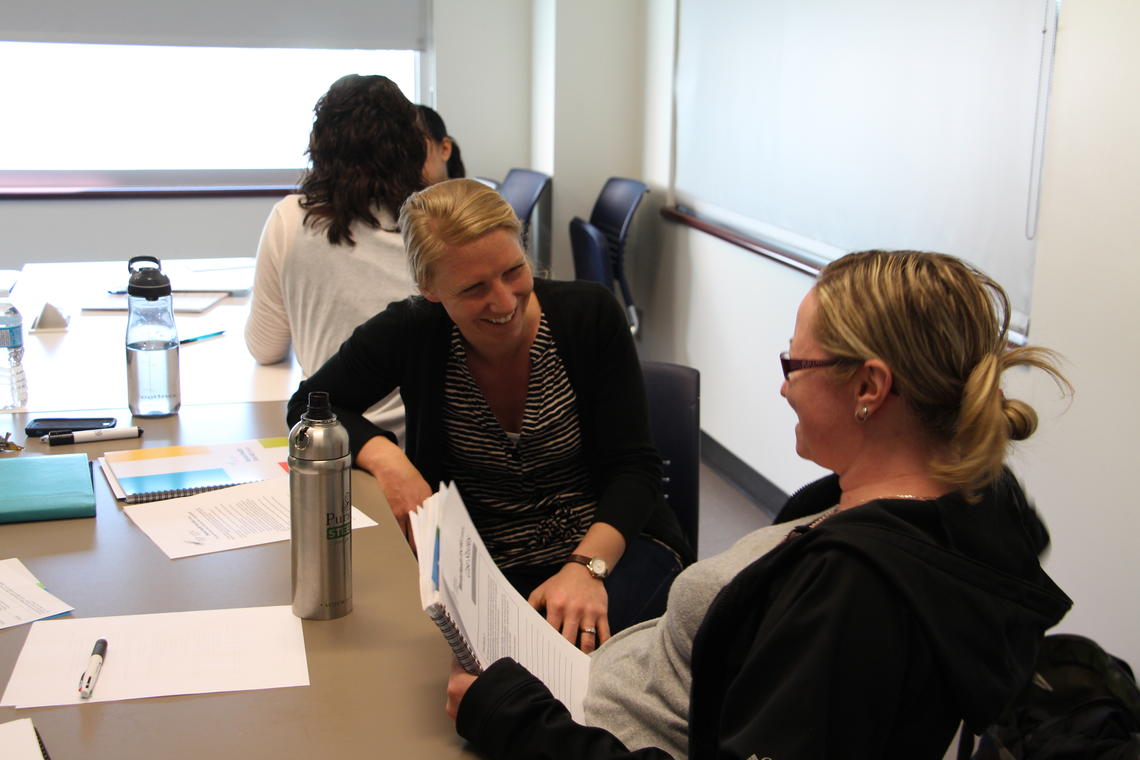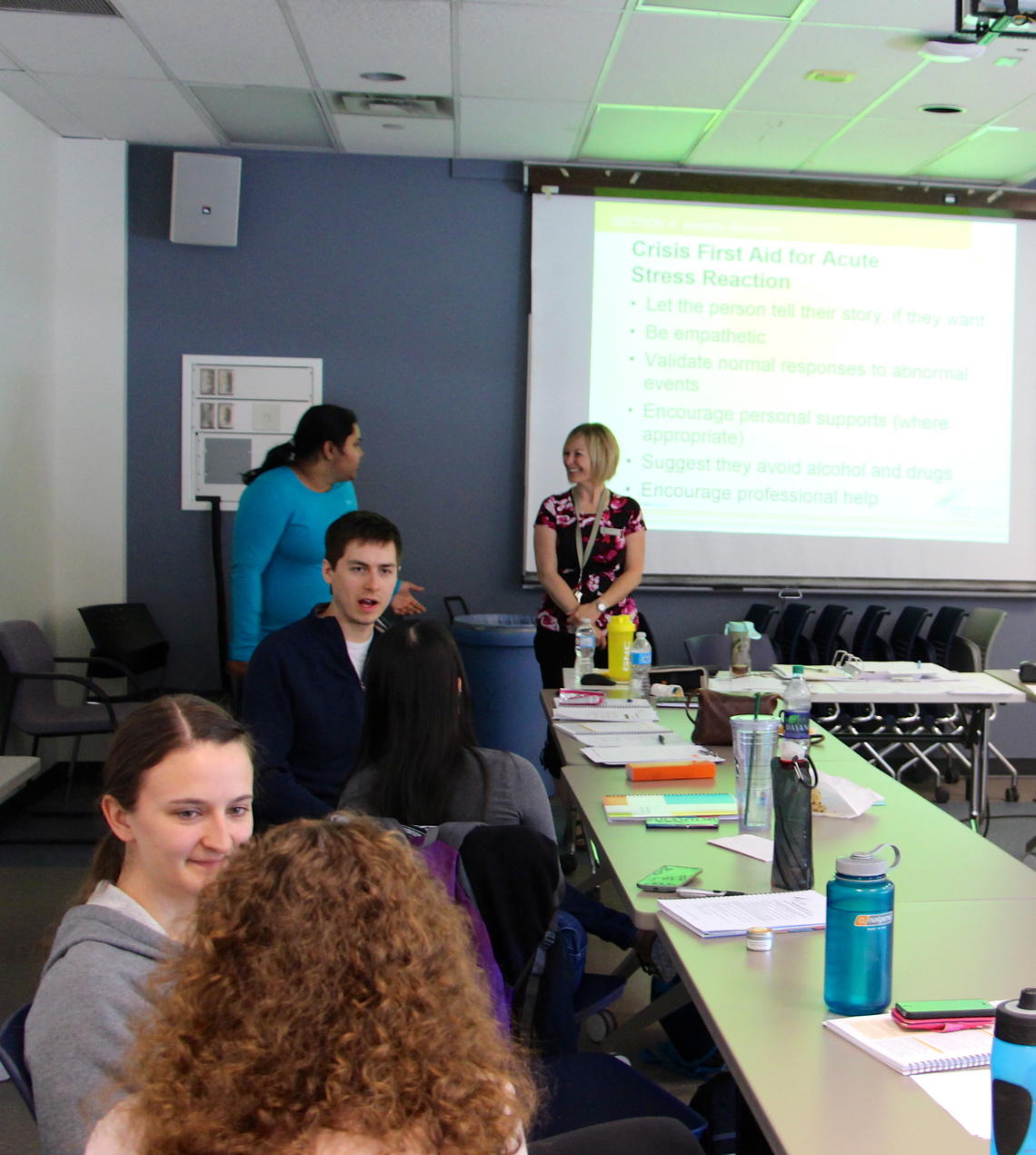
Tiffany Talen, left, participates in scenario dialogue in the Mental Health First Aid course.
Danielle Fink, University of Calgary
June 15, 2016

Tiffany Talen, left, participates in scenario dialogue in the Mental Health First Aid course.
Danielle Fink, University of Calgary
Being certified to administer basic physical first aid is a common skill, but did you know that you can now be certified to respond to and help people experiencing a mental health crisis?
Thanks to a program created by the Mental Health Commission of Canada, the Faculty of Social Work and the Students’ Union are presenting a training and certification course to equip students with mental health first aid (MHFA) knowledge and skills. This kind of training is crucial in Canadian society today, as one in three Canadians face a mental health challenge at some point in their life.
Learning to recognize the signs and how to respond
“The MHFA program is a natural addition to the programming available to social work students,” says Jackie Sieppert, dean of the Faculty of Social Work. “It is intended to enhance their professional skills, while also supporting broader mental health initiatives at the University of Calgary."
Kelly Gallant, a certified MHFA instructor and Faculty of Social Work career specialist, led a cohort of 15 students through their MHFA certification for the first time in late May. Over two days, students learned to recognize physical and non-physical signs of mental health issues, the various situations that may arise, and how to respond to the signs and symptoms. It is the first time the MHFA program has been offered on campus.
“This is important knowledge for those in both the helping professions and the non-helping professions,” says Gallant.

Kelly Gallant, a certified Mental Health First Aid instructor, works with students.
Danielle Fink, University of Calgary
Program free for social work students
This program educates the public to understand mental illness and its risk factors, signs and symptoms while inviting early detection and treatment. Depending on the mental health issue or crisis, the model of MHFA is applied until further treatment is attained. Providing a first response, a MHFA administrator can prevent serious or even life-threatening damage to one’s self or others.
The course is currently open to social work students free of charge. It is presented through a combination of instruction, dialogue, role-play activities and case studies.
Tiffany Talen, a Master of Social Work student, considers the certification program to be a huge asset to her social work training.
“This certification diversifies my skill set as a social worker and as an individual,” says Talen. “Social work is an interdisciplinary field and we need to remember that we may be working with people who may not have training and knowledge about mental health issues.”
Course can help to change stigma around mental health
MHFA is a certification that helps to promote workplace mental health wellness, address familial and personal mental health issues, and can broaden the knowledge of those working in any field.
Gallant has been approved to host numerous courses over the next three years. She expects around 250 students to be certified in that time. The next Calgary cohort will be held in July, followed by a cohort at the Faculty of Social Work’s Edmonton campus in October.
“This course can help change the stigma surrounding mental health and increase mental health literacy," says Gallant.
"Our hope is that we start to view mental illness without fear and with the freedom to learn more about it as an overall health concern."